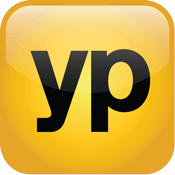It’s Spring Cleaning Season! Here’s How to Use a Pressure Washer
Spring is here, and along with it, that feeling that we should probably take a close look at our homes or businesses. If your building, vehicles, sidewalks and more have been a little dingy throughout the season, a pressure washer can help. Here are our best tips on how to use a pressure washer in San Jose, CA.
What is a pressure washer good for?
Pressure washers are excellent for cleaning large outdoor surfaces quickly. As long as the surface is hard enough that the pressurized water won’t harm it, you can use them on everything from trucks to sidewalks. Instead of using rags or brushes and buckets, you can use pressure washers to easily get rid of grime, dust, dirt, rust, tar, grease and mold.
Some pressure washing jobs require a detergent, which you can preload into the machine. Then all you have to do is spray the dirty surface, taking care to rinse it off with clean water when you’re done. They eliminate just about any kind of grime, with far less elbow grease than scrubbing by hand.
Never use your pressure washer on living beings, like humans, animals or plants. The water can injure humans and pets, and will likely harm your plants as well. If you have children, make sure they’re well supervised anytime you’re using the pressure washer. Although it might seem like a fun toy, pressure washers can cause serious injury.
When choosing a pressure washer, get a model that will be powerful enough for the jobs you need it to do. Although some low-end pressure washers can be had for around $100, they tend to have lower pressure per square inch and send out fewer gallons per minute. Models in the $200 to $600 range are usually good for washing your siding, sidewalks and large vehicles. Look for something in the 2,000 to 3,200 PSI and 2 to 3.2 GPM range.
Pressure washing tips in San Jose, CA
Here are some helpful tips to ensure you use your pressure washer safely and effectively:
- Wear ear and eye protection: Pressure washers are often more powerful than fire hoses, so consider wearing eye protection in case of an accident. Ear protection is always a good idea when working around loud machinery.
- Get familiar with the different tips: Your pressure washer will probably come with different tips, which spray the water in diverse manners. Certain tips will work better for different jobs—for example, a fan-shaped tip is good for cleaning larger areas.
- Start slow: You can damage surfaces with your pressure washer, so make sure you start slow and stand back at least three feet. You can always increase the pressure if it’s not adequate.
- Use detergent when necessary: Sometimes you’ll need detergent to clean up after different projects. Most (if not all) pressure washers have siphon hoses or basins to draw out the detergent and add it to the spray.
Now that you know how to use a pressure washer in San Jose, CA, visit Royal Brass Incorporated when you need to replace your hoses, valves and fittings.
Categorised in: Pressure Washers





